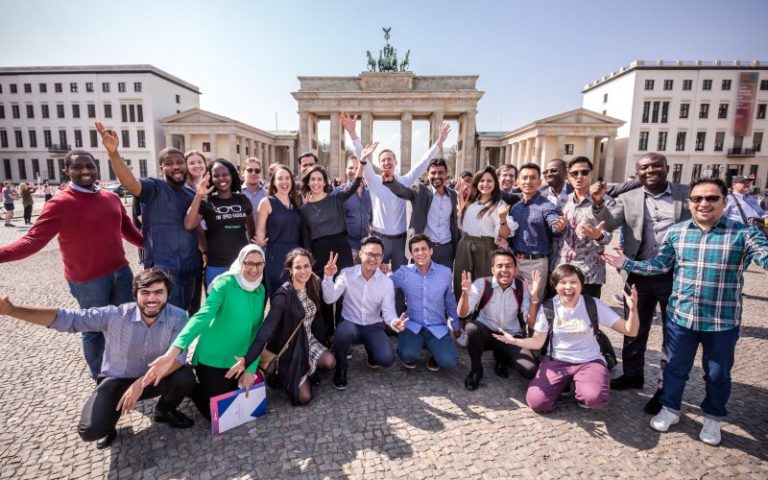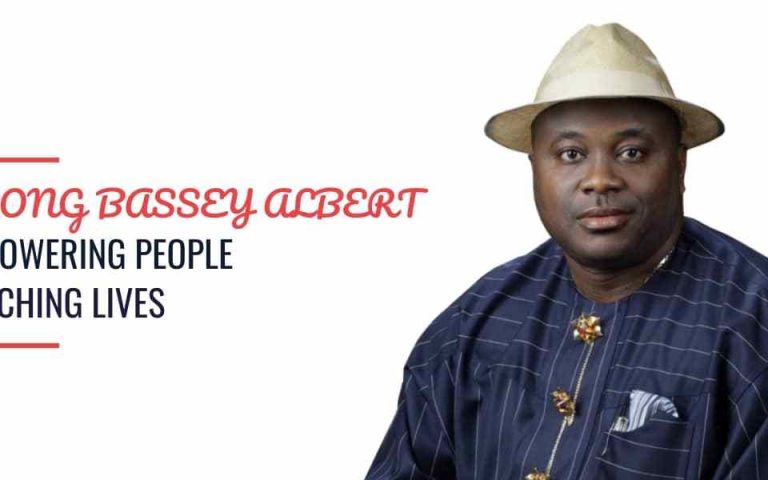Learnership Opportunities for People With Disabilities 2026 – A Detailed Guide
In South Africa, the Learnership Opportunities for People With Disabilities 2026 are designed to create a more inclusive workforce by offering training and work experience to individuals who face barriers to employment due to disabilities. These learnership programs provide valuable opportunities for people with disabilities to gain workplace skills, earn formal qualifications, and enhance their employability prospects in a variety of industries.
With increasing emphasis on diversity, equity, and inclusion, companies and organizations are more committed than ever to providing individuals with disabilities the same opportunities for career development as their non-disabled peers. The year 2026 brings with it new chances for people with disabilities to embark on a fulfilling career journey through learnerships designed to provide both theoretical training and practical work experience.
This article explores the learnership opportunities available for people with disabilities in South Africa for the year 2026, highlighting the benefits, eligibility criteria, industries, and how to apply.
What Are Learnerships for People With Disabilities?
Learnerships are formal training programs that combine classroom-based learning with practical work experience to help individuals develop both theoretical knowledge and technical skills in a particular field. These programs allow individuals to gain hands-on experience in a workplace environment while completing an NQF (National Qualifications Framework)-aligned qualification.
For people with disabilities, learnership opportunities are especially crucial, as they provide an accessible pathway to the workforce by addressing challenges such as:
- Limited access to education or work experience
- Inadequate accommodation and support in traditional workplaces
- The need for flexibility in terms of working hours and duties
Through these learnerships, people with disabilities can develop the skills and qualifications necessary to pursue long-term careers, increase their independence, and contribute to society in meaningful ways. The ultimate goal is to create an inclusive workforce that values and leverages the diverse abilities of all employees.
Why Should People With Disabilities Apply for Learnerships?
There are several reasons why individuals with disabilities should consider applying for learnerships in 2026:
1. Inclusive Learning and Work Environment
- Learnerships provide a safe, accessible, and inclusive environment where individuals with disabilities can thrive. Companies offering such programs are often committed to ensuring that their workplaces are equipped with reasonable accommodations for various disabilities, making it easier for applicants to succeed.
2. Gain Practical Work Experience
- Hands-on experience is one of the most valuable components of any learnership. Participants not only receive training in a classroom but also work directly in a real-world environment, gaining essential industry knowledge and job-specific skills. This experience makes them more competitive in the job market.
3. Earn While You Learn
- Most learnerships come with a stipend or allowance to help participants meet their financial needs during the program. This means that people with disabilities can gain qualifications while earning an income, which is particularly important for those who might face financial constraints.
4. Build Skills for Future Employment
- Learnerships equip individuals with the technical and soft skills required to excel in the workplace. Upon completion, participants gain a nationally recognized qualification, improving their employability and the likelihood of securing a full-time job in their chosen field.
5. Career Advancement and Mentorship
- As part of the learnership program, participants often receive ongoing mentorship from experienced professionals. This mentorship helps participants navigate challenges, gain industry-specific insights, and improve their professional networks, which can lead to permanent employment.
6. Contribute to an Inclusive Society
- By participating in a learnership, individuals with disabilities contribute to creating a more inclusive society, where everyone—regardless of physical ability—can access opportunities for personal growth and career advancement.
Key Industries Offering Learnership Opportunities for People With Disabilities
A wide range of industries in South Africa offer learnership opportunities to individuals with disabilities. Some of the prominent sectors that encourage inclusivity and offer learnerships in 2026 include:
1. Retail and Sales
- Many major retail chains are committed to inclusivity and regularly offer learnerships for people with disabilities. In this sector, individuals can learn skills related to sales, customer service, stock management, and visual merchandising.
2. Information Technology (IT)
- The IT sector is one of the fastest-growing industries in South Africa. People with disabilities can pursue learnerships in areas such as software development, network administration, database management, and IT support, among others.
3. Banking and Finance
- Banking and finance institutions in South Africa, including major banks, often provide learnerships for people with disabilities. These programs can lead to careers in financial management, accounting, customer service, and administration.
4. Public Administration
- Government departments and municipalities offer learnerships in areas such as human resources, project management, administrative support, and policy implementation. These positions allow individuals with disabilities to play a vital role in public service.
5. Engineering and Technical Fields
- The engineering and construction sectors offer learnerships in fields such as civil engineering, mechanical engineering, project management, and technical support, providing individuals with disabilities the opportunity to work in dynamic and impactful roles.
6. Healthcare and Social Services
- In the healthcare sector, people with disabilities can gain experience in roles such as administration, nursing support, health promotion, and medical billing. Social services also provide opportunities to work in community development, social work, and public health programs.
7. Hospitality and Tourism
- The hospitality industry, including hotels, restaurants, and travel agencies, offers learnerships that can lead to careers in hotel management, tourism, event planning, and food service management.
8. Manufacturing and Logistics
- Learnerships in manufacturing, supply chain, and logistics focus on skills such as production management, inventory control, warehouse operations, and logistical coordination.
Eligibility Criteria for Learnership Opportunities for People With Disabilities 2026
To qualify for a learnership for people with disabilities, applicants must meet the following general criteria:
1. Disability
- The learnership programs are specifically for people with disabilities, so applicants must be able to provide proof of their disability. The definition of disability may vary, but it includes physical, sensory, intellectual, or mental impairments.
2. Educational Requirements
- The specific educational qualifications required will depend on the nature of the learnership. However, a Matric certificate (Grade 12) is typically the minimum requirement for most learnerships. For technical and specialized positions, individuals may need to have completed a National Diploma or Degree.
3. Age Requirements
- Most learnerships are targeted at young people, typically between 18 and 35 years of age, although there may be exceptions depending on the program.
4. Citizenship
- Applicants must be South African citizens to apply for government or public-sector learnerships. For private-sector opportunities, some organizations may accept non-South African citizens, but proof of legal residence or work authorization may be required.
5. Skills and Competencies
- Employers may look for basic skills such as communication, teamwork, problem-solving, and time management. Depending on the field, technical skills or prior experience may also be preferred.
6. Documentation
- Applicants will need to submit a detailed CV, proof of disability, educational certificates, and any other relevant documents. Some programs may also require an application form to be completed.
How to Apply for Learnerships for People With Disabilities 2026
Here are the steps you can follow to apply for learnerships for people with disabilities:
1. Search for Learnership Opportunities
- Look for learnership listings on reputable job portals such as Pnet, Indeed, and GovNet. You can also visit the careers page of companies you are interested in or check with relevant disability organizations for available programs.
2. Prepare Your Application Documents
- CV/Resume: Include relevant educational qualifications, work experience (if any), and skills.
- Cover Letter: Write a compelling cover letter that highlights your interest in the learnership, your skills, and why you are a suitable candidate.
- Proof of Disability: You will need to provide supporting documentation that verifies your disability status.
3. Submit Your Application
- Follow the application instructions provided in the job listing. Some companies may require you to apply via their online portals, while others may accept applications via email or post.
4. Prepare for the Interview
- If shortlisted, you may be invited for an interview or an assessment. Prepare by researching the company, understanding the role you applied for, and being ready to discuss how you can contribute to the team.
5. Follow Up
- After submitting your application, consider following up to ensure that your documents were received and to express your enthusiasm for the
position.
Learnership Opportunities for People With Disabilities 2026 are a valuable resource for individuals who want to break into the workforce, gain experience, and build long-term careers. These programs not only provide technical skills and workplace experience but also promote diversity and inclusion in the South African workforce. By taking part in a learnership, you can contribute to a more inclusive society while empowering yourself with the tools and qualifications needed to succeed in your chosen field.
If you’re ready to start your career journey, apply for a learnership today and take the first step toward a brighter, more inclusive future!



